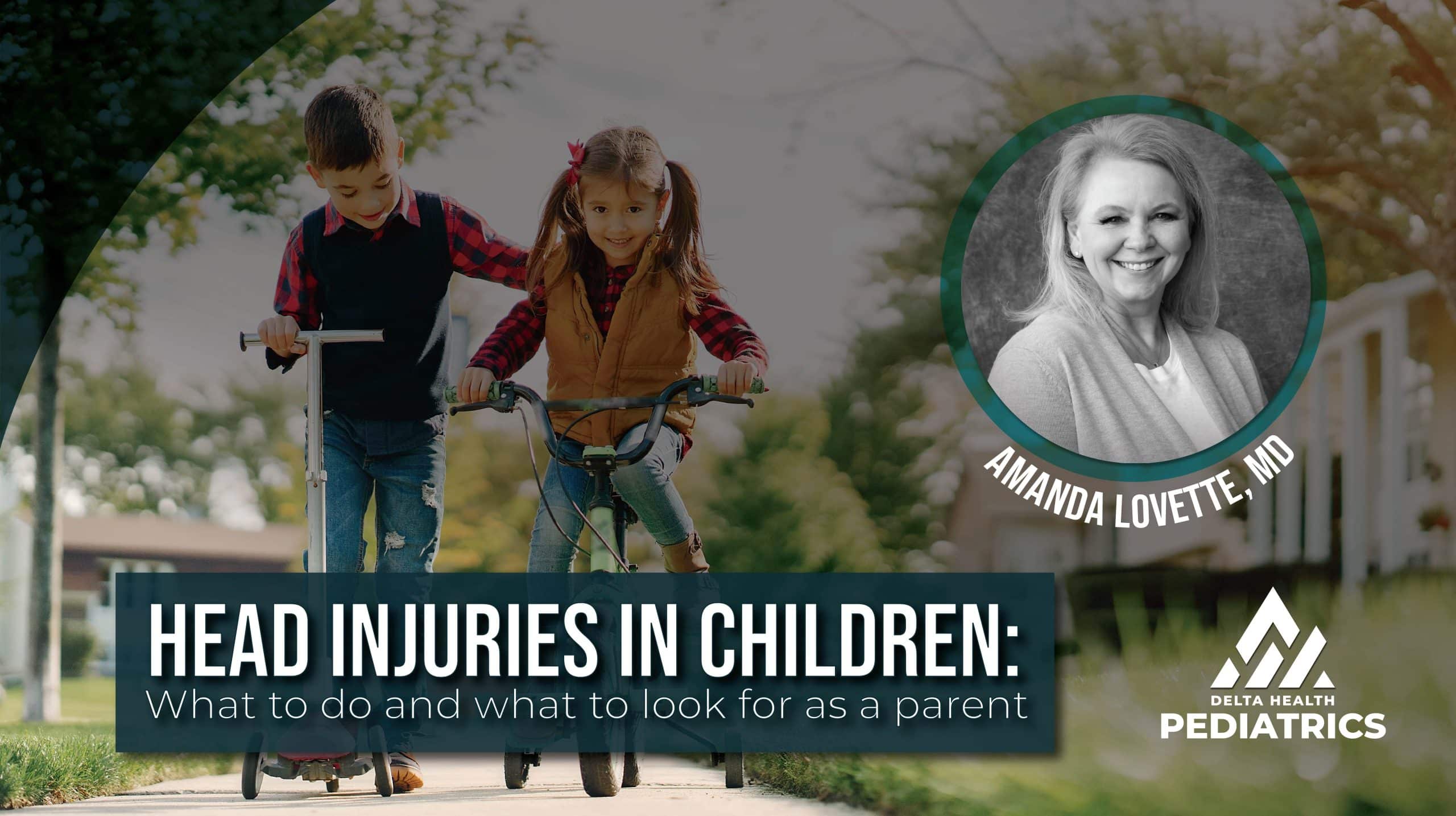One of the most common injuries in pediatrics is when a child has a head injury. They may fall off something they have climbed on. They may knock their head walking around a corner. And small children often walk right into counter edges because they are often right at that height. They have rocks thrown at them, or they are hit in the head with a toy by another child. Older children will have head injuries during sports or with outdoor activities.
Parents are understandably concerned when their child hits his head. Fortunately, most times, the head injury is minor and there are no negative consequences. It usually takes significant force to the head to cause internal injury and most routine head knocks cause only a bruise and some tears and no long-lasting injury. Short falls, around 2-3 feet and especially onto softer surfaces like a carpeted floor, rarely cause serious injury. But what should parents do and what should they look for when their child hits his head?
Following a head injury, parents should monitor their child closely for 24 hours. When a child hits his head, often there is bleeding through a cut or even under the skin. The scalp has a lot of blood vessels so frequently when a child hits his head, there is a collection of blood that develops and causes a lump, which is sometimes quite impressive. If a child has a cut that appears deep, or which will not stop bleeding, this is definitely a reason to seek additional care.
Parents will also want to monitor their child for other concerning symptoms such as:
- Size differences in their child’s pupils (the dark circles at the center of the eyes)
- Excessive sleepiness
- Slurred speech
- Problems with balance and coordination
- Nausea that won’t resolve, or persistent vomiting
- Twitching or shaking or seizure-like activity
- Loss of consciousness
- A skull fracture that can be felt
- Unusual agitation or mood swings, or restlessness
Concussions can happen because of a brain injury and are essentially a brain bruise. Your child may experience headaches, mood swings, memory changes, concentration issues, and sleep disturbances after a concussion. There are guidelines for returning to sports participation after a concussion and there are issues that must be addressed in the care of a concussion, so you will want to seek medical care if you feel your child has sustained a concussion.
More serious head injuries could cause bleeding in or around the brain. Usually, there are signs like the symptoms above that will indicate that is an issue, so you will need to consult with your child’s care provider or seek emergency care if you have concerns about that possibility.
Children knock their heads all the time. Usually, the head knock causes no long-lasting injury but the above list will help you determine if you need to seek care for your child’s head injury. If you have any questions, or to learn more, contact Delta Health Pediatrics at 970.546.4000.
DISCLAIMER: This article is for informational purposes only and is not a substitute for medical advice or treatment. Always seek the advice of your physician or other qualified health care provider with any questions you may have regarding a medical condition or treatment and before undertaking a new health care regimen.


